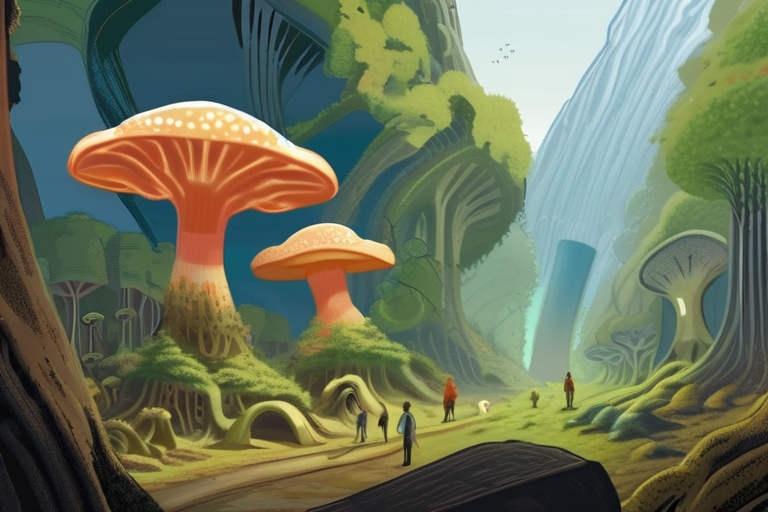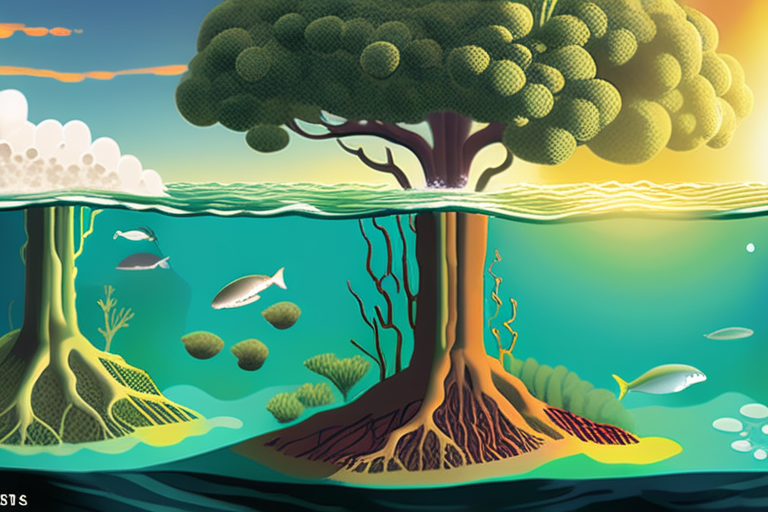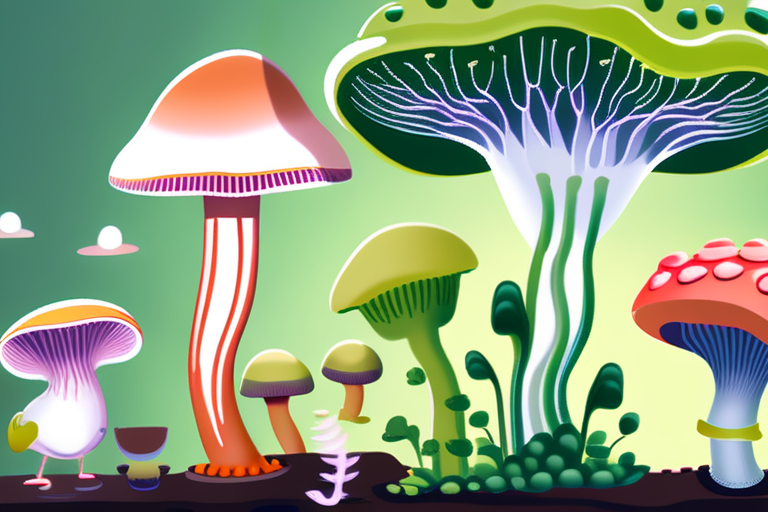

Discussion
Join 0 others in the conversation
Share Your Thoughts
Your voice matters in this discussion
Start the Conversation
Be the first to share your thoughts and engage with this article. Your perspective matters!
More Stories
Discover articles from our community

The ancient oxygen flood that forever changed life in the oceans
 Hoppi
Hoppi

Dinosaurs' Demise Sparked Cataclysmic Changes to Earth's Landscape
 Hoppi
Hoppi

How plants and fungi trade resources without a brain
 Hoppi
Hoppi

Cosmic Collision Transformed Earth from Barren Rock to Blue Planet
 Hoppi
Hoppi

Dipeptides Unveil Clues to Life's Mysterious Origins
 Hoppi
Hoppi

Dinosaurs' Demise Sparked Earth's Most Daring Transformation
 Hoppi
Hoppi

The ancient oxygen flood that forever changed life in the oceans
Ancient Oxygen Flood Forever Changed Life in the Oceans A groundbreaking study published by researchers at Duke University has revealed …

Hoppi

Dinosaurs' Demise Sparked Cataclysmic Changes to Earth's Landscape
Dinosaurs' Sudden Extinction Led to Widespread Changes in Earth's Landscape A groundbreaking study published by University of Michigan paleontologist Luke …

Hoppi

How plants and fungi trade resources without a brain
Plants and Fungi Trade Resources Without a Brain In a groundbreaking discovery, scientists have found that plants and fungi are …

Hoppi

Cosmic Collision Transformed Earth from Barren Rock to Blue Planet
Earth's Birth: A Cosmic Collision Made it a Blue Planet A groundbreaking study by the University of Bern has revealed …

Hoppi

Dipeptides Unveil Clues to Life's Mysterious Origins
Tiny Protein Pairs May Hold Secret to Life's Origin A groundbreaking study by a team of researchers at the University …

Hoppi

Dinosaurs' Demise Sparked Earth's Most Daring Transformation
The Cretaceous-Paleogene Extinction Event: A Catalyst for Earth's Transformation A new study published in the journal Science reveals that the …

Hoppi
